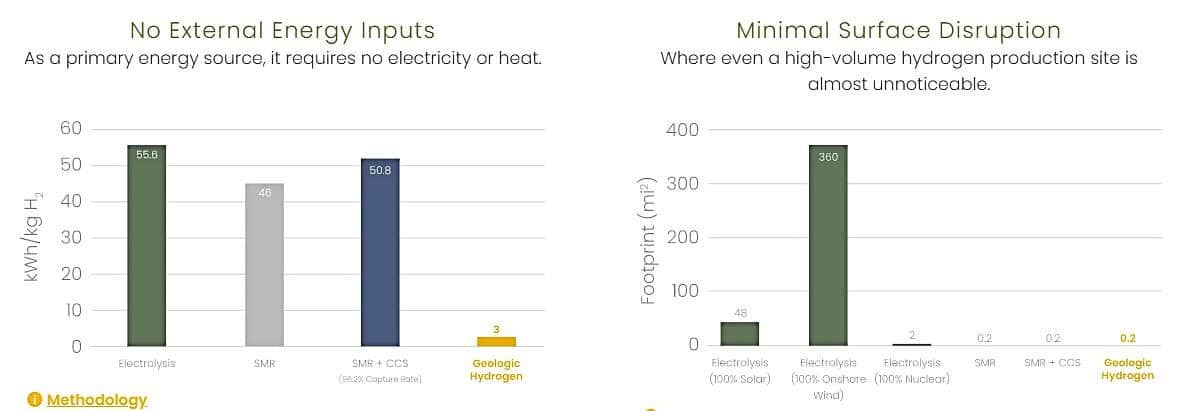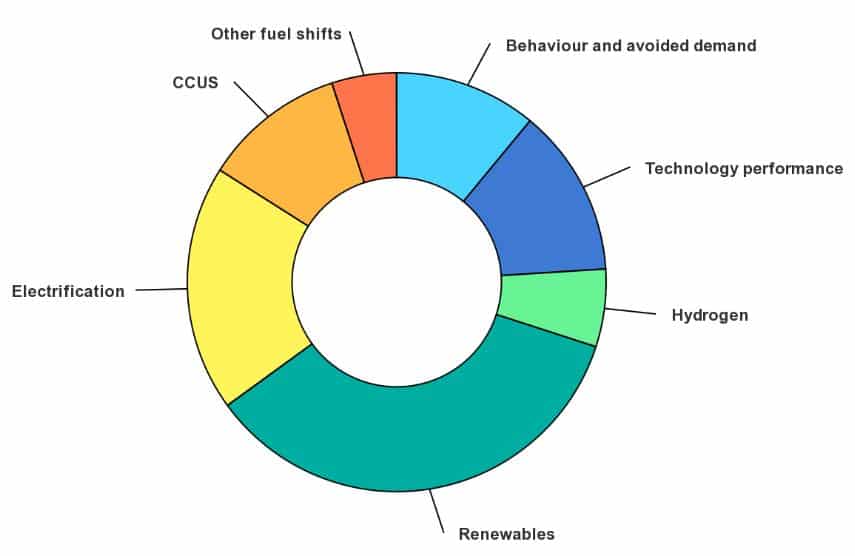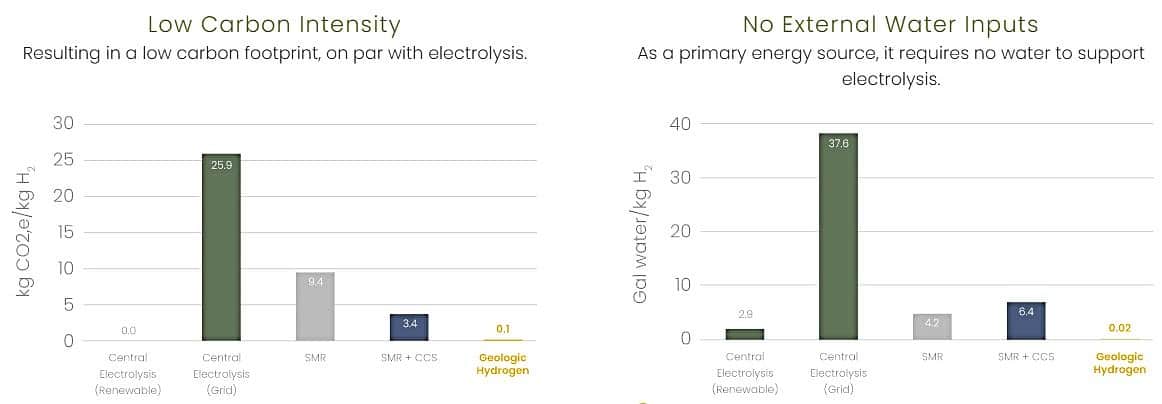A Denver-based startup, Koloma, received $91 million in funding from Bill Gates and other investors to drill natural hydrogen in the U.S. Midwest, a venture that can ramp up the clean energy revolution.
The hydrogen startup has plans to avail incentives both from the U.S. Bipartisan Infrastructure Law and the Inflation Reduction Act, particularly the hydrogen production tax credit (PTC).
Natural Hydrogen: The Next Global Gold Rush?
The knowledge of the existence of naturally occuring hydrogen has been around for centuries but is not well understood. With the recent revelation by Koloma, this could be about to change.
Natural hydrogen, also called gold or white hydrogen, has made headlines as a potential new renewable energy source. It differs from other types of hydrogen in that it’s a primary source of energy like fossil fuels but carbon-free.
Koloma believes that it can tap into a regenerating supply of underground hydrogen through a process called serpentinization. The process breaks down iron- and magnesium-based minerals under the earth’s surface deep in the seafloor to produce hydrogen-rich fluids and other minerals.
This process of natural hydrogen production can deliver around 23 million tonnes of H2 each year, Koloma said. This amount is equal to almost a quarter of current total global hydrogen demand.
The company refers to this regenerative gas geologic hydrogen with clean and environmentally-friendly attributes. Coming from iron-rich source rocks and as a primary energy source, geologic hydrogen requires no external energy and water inputs. It also has a low carbon footprint compared to electrolysis and results in minimal surface disruption.
Koloma’s Geologic Hydrogen Production

Highlighting these facts about carbon-free hydrogen production, Koloma’s co-founder and CTO, Tom Darrah, said that:
“It’s [Hydrogen] on every continent… The scale of how much there is, is profound.”
Darrah is an Earth sciences professor and an expert in extracting hydrogen who has 16 patents involving H2 extraction. One of them includes the use of AI-assisted laser imaging and satellites to assess sites potentially storing natural hydrogen.
The hydrogen startup analyzes samples from its Midwestern wells in Darrah’s laboratory at the Ohio State University. The tests will help reveal the sites with the best H2 volume and purity.
Koloma, however, didn’t disclose the exact location of their wells and the dates of their commercialization.
From Secret Mode to Revolutionary Revelation
Koloma, founded in 2021, has been operating in stealth or secret mode but revealed itself in an interview with Forbes magazine.
The $91 million investment made Koloma the most-funded company in the space. It got the funds from Bill Gates’ Breakthrough Energy Ventures and other big climate investors Energy Impact Partners, Evōk Innovations, Prelude Ventures, and Piva Capital.
The startup didn’t say how much of the funds came from the Microsoft founder Bill Gates. The billionaire himself is a promoter of hydrogen, believing that it is the ‘Swiss Army knife’ of renewable sources.
The company’s revelation that there are vast reserves of clean, regenerative geologic hydrogen beneath the earth’s surface can help revolutionize the energy transition. It could have never been more timely as the world tackles the climate crisis.
Using hydrogen though comes with some challenges because of its flammable nature. But when used in fuel cells, H2 can produce clean energy with only water as a byproduct.
The gas can be used as a carbon-free fuel for vehicles, power generators, and other industrial applications. In fact, Toyota has plans to sell 200,000 hydrogen-powered vehicles by 2030.
Koloma believes that geologic hydrogen will be a cheaper and less energy-intensive alternative to other types of hydrogen. Though the hydrogen company didn’t reveal its commercial operations, the startup can earn tens of billions of dollars in revenue if its venture becomes successful.
The $1 Trillion Market by 2050
Currently, the global hydrogen market is worth over $120 billion, with 100 million metric tons in annual consumption volume. Industry experts think that naturally-occuring geologic hydrogen can potentially ditch fossil fuels.
According to Goldman Sachs, the market will more than double to $250 billion by 2030 and worth $1 trillion by 2050. This is crucial as hydrogen is becoming an increasingly important piece of the net zero emissions by 2050 puzzle.
According to the International Energy Agency, strong hydrogen demand growth and the adoption of cleaner technologies for its production will enable H2 and H2-based fuels to have a significant contribution in its Net Zero Emissions Scenario.
Emissions Reduction by Mitigation Measure in the Net Zero Scenario, 2021-2050

Green hydrogen is dubbed as the energy of the future and it begins this 2023 as subsidies start pouring in.
In the U.S., the government allocated over $9 billion for clean hydrogen projects in the 2021 Bipartisan Infrastructure Law. Plus, President Biden’s Inflation Reduction Act provides a tax credit of $3/kilo for zero-carbon fuel which geologic hydrogen meets. Koloma will apply for subsidies under both programs.
The EU’s Carbon Contracts for Difference (CCfD) also subsidizes green hydrogen through its Innovation Fund. The UK also has a similar CfD subsidy scheme for clean hydrogen production.
Germany, Canada, and India also have their own programs to make hydrogen a viable sector of the clean energy market.
The Bill Gates-backed startup said it will start commercial operations when demand for hydrogen ramps up. And this seems to be near starting this year. Through its geologic hydrogen production, Koloma sets the stage for a sustainable future where drilling clean hydrogen is as common as drilling dirty fossil fuels.


